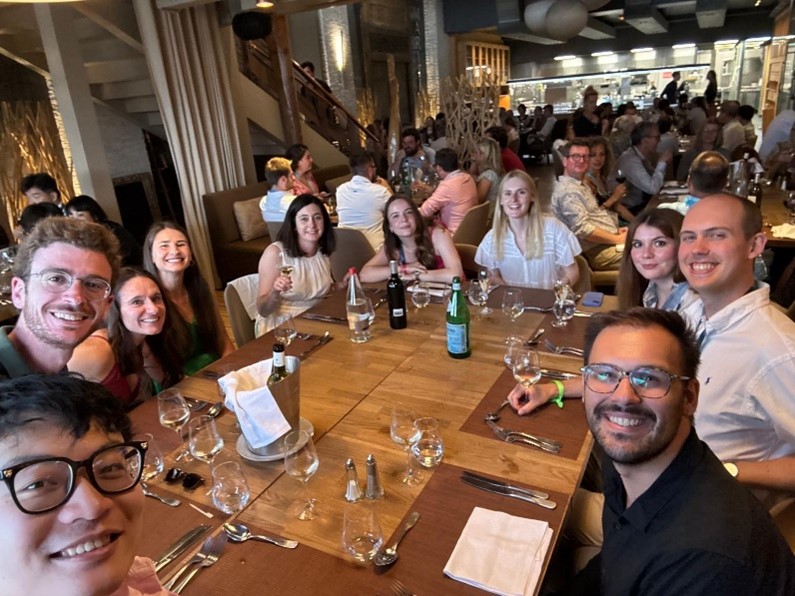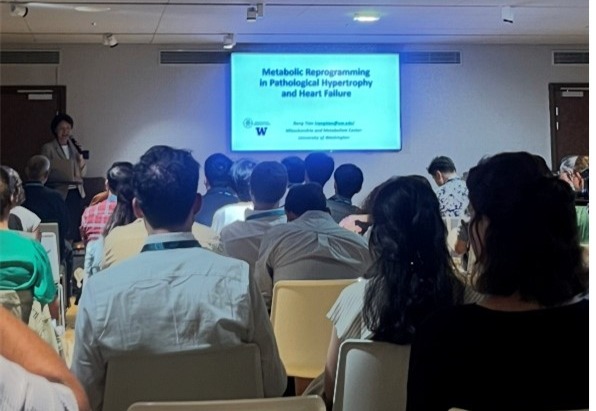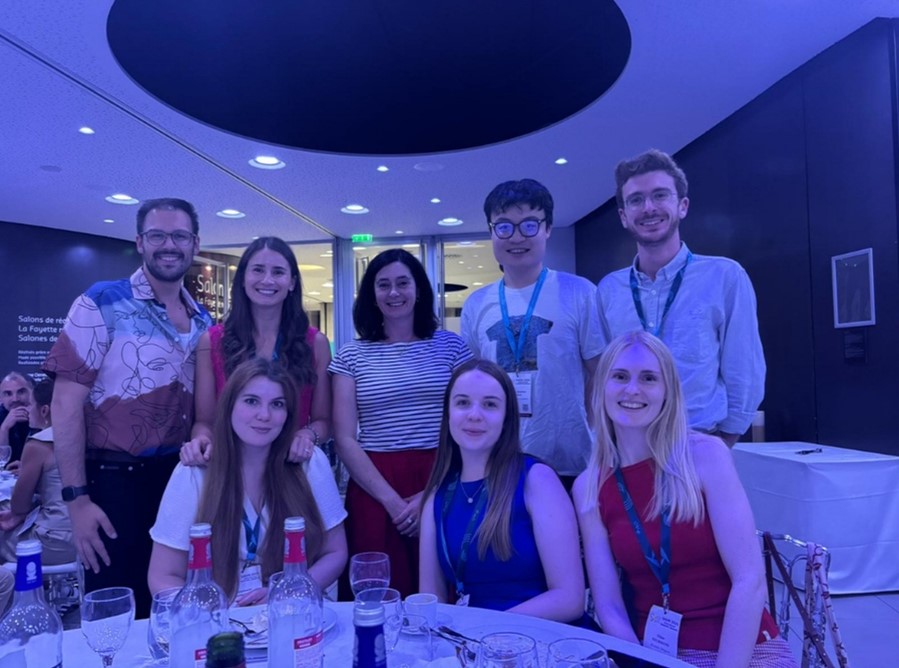Travel Report: 2025 Society for Heart and Vascular Metabolism
Kaitlyn Dennis
The 2025 Society for Heart and Vascular Metabolism (SHVM) conference was held in Bordeaux, France, from June 22–25, 2025. This year’s theme, “Shedding Light on Emerging Metabolic Targets in Cardiovascular Diseases,” brought together researchers from around the world. The conference featured a broad range of sessions focused on targeting metabolism in right ventricular dysfunction and hypertension, cardiac arrhythmias, embryonic development to cardiac organoids, heart failure with preserved ejection fraction (HFpEF), immunometabolism, and iron metabolism. Talks were given by both international and local experts, ranging from established principal investigators giving keynote lectures and invited talks, to graduate students and postdoctoral researchers presenting invited short talks. Attending the 2025 SHVM conference was an invaluable opportunity to engage with world leaders in cardiac metabolism and to explore new cutting-edge science being conducted by trainees across the globe.

One of the standout experiences for me was the Professional Development session, which was specifically designed for trainee development. Held on the first day of the conference, it was a great way to connect with fellow trainees early on. The session began with short lectures from leading experts in Artificial Intelligence (AI), including Prof. Dieterich (Heidelberg University) and Prof. Gwang Lee (Ajou University), who discussed the integration of AI in cardiovascular and mitochondrial research. As someone eager to learn how AI can support multiomics analysis, I found this portion especially compelling. The session also featured a career advice roundtable, which included both Early Career and Senior Researchers from both academia and industry. As a postdoctoral researcher in the early stages of my career, I greatly appreciated the practical tips and personal stories shared by the panellists about navigating career progression. A particularly unique aspect of this session was the opportunity to hear from Dr. Gregory Lim, Chief Editor of Nature Reviews Cardiology. Dr. Lim offered valuable insights into writing high-quality review articles and highlighted exciting opportunities the journal provides for Early Career Researchers. Finally, given that the event was hosted in La Cité du Vin (Bordeaux), we were treated to a fascinating lecture by Prof. Tristan Richard on the use of ¹H-NMR for wine analysis. It was exciting to see how this technique can be applied across disciplines, and I thoroughly enjoyed learning about the use of this advanced analytical technique to characterize wine composition, authenticity and quality.
Throughout the conference, I had the opportunity to attend many outstanding talks and gained valuable new knowledge and insights. A particular highlight was the keynote lecture by Prof. Rong Tian (University of Washington), a world leader in the field of cardiac metabolism. Her discussion on the role of mitochondria in pathological cardiac hypertrophy and heart failure was both exciting and highly informative. I also greatly enjoyed the keynote lecture from Prof. Sihem Boudina (University of Utah), who explored the role of autophagy in cardiovascular health and aging. As this is an area I am less familiar with, it was a fantastic opportunity to expand my understanding of how autophagy contributes to cardiovascular disease. Another presentation that stood out to me was by Dr. Kavita Sharma (Johns Hopkins School of Medicine), who shared myocardial metabolomics data from human HFpEF patients. It was fascinating to learn about the distinct metabolic signatures associated with HFpEF. I was also very interested in the work presented by Prof. Gabriel Schiattarella, who investigates the liver–cardiac axis in the context of metabolic dysfunction-associated steatotic liver disease (MASLD) and HFpEF. Given that my current research also explores the liver–cardiac axis in response to dietary lipids, his findings were particularly interesting.

In addition to learning from the scientific sessions, I had the opportunity to present my own research during a dedicated two-hour poster session. This experience allowed me to engage with expert researchers from around the world and receive valuable feedback that will help shape the future direction of my work. I also thoroughly enjoyed interacting with posters presented by other trainee researchers. Learning about new techniques and methodologies has inspired fresh ideas and alternative approaches for my own projects. Moreover, the session was a fantastic opportunity to foster new professional connections, and I am truly grateful to have been able to attend and participate in the 2025 SHVM conference. Thank you to the BSCR for helping to make my attendance possible.
